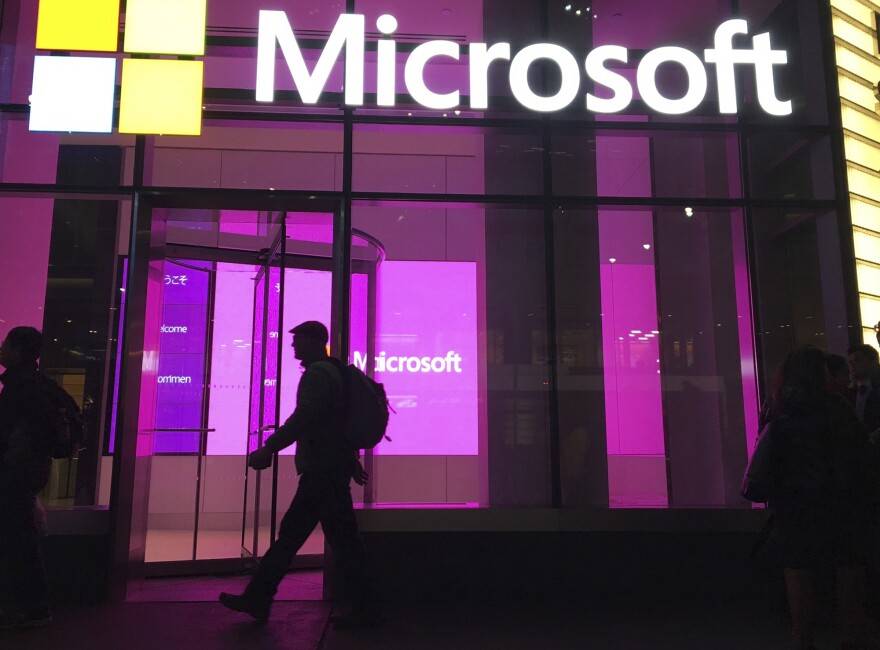Last year was, by all accounts, a bloodbath for the tech industry, with more than 260,000 jobs vanishing — the worst 12 months for Silicon Valley since the dot-com crash of the early 2000s.
Executives justified the mass layoffs by citing a pandemic hiring binge, high inflation and weak consumer demand.
Now in 2024, tech company workforces have largely returned to pre-pandemic levels, inflation is half of what it was this time last year and consumer confidence is rebounding.
Yet, in the first four weeks of this year, nearly 100 tech companies, including Meta, Amazon, Microsoft, Google, TikTok and Salesforce have collectively let go of about 25,000 employees, according to layoffs.fyi, which tracks the technology sector.
All of the major tech companies conducting another wave of layoffs this year are sitting atop mountains of cash and are wildly profitable, so the job-shedding is far from a matter of necessity or survival.
Then what is driving it?
"There is a herding effect in tech," said Jeff Shulman, a professor at the University of Washington's Foster School of Business, who follows the tech industry. "The layoffs seem to be helping their stock prices, so these companies see no reason to stop."
Some smaller tech startups are running out of cash and facing fundraising struggles with the era of easy money now over, which has prompted workforce reductions. But experts say for most large and publicly-traded tech firms, the layoff trend this month is aimed at satisfying investors.
Shulman adds: "They're getting away with it because everybody is doing it. And they're getting away with it because now it's the new normal," he said. "Workers are more comfortable with it, stock investors are appreciating it, and so I think we'll see it continue for some time."
Interest rates, sitting around 5.5%, have risen substantially from the near-zero rates of the pandemic. And some tech companies are reshuffling staff to prioritize new investments in generative AI. But experts say those factors do not sufficiently explain this month's layoff frenzy.
Whatever is fueling the workforce downsizing in tech, Wall Street has taken notice. The S&P 500 has notched multiple all-time highs this month, led by the so-called Magnificent Seven technology stocks. Alphabet, Meta and Microsoft all set new records, with Microsoft's worth now exceeding $3 trillion.
And as Wall Street rallies on news of laid-off tech employees, more and more tech companies axe workers.
"You're seeing that these tech companies are almost being rewarded by Wall Street for their cost discipline, and that might be encouraging those companies, and other companies in tech, to cut costs and layoff staff," said Roger Lee, who runs the industry tracker layoffs.fyi.
Stanford business professor Jeffrey Pfeffer has called the phenomenon of companies in one industry mimicking each others' employee terminations "copycat layoffs." As he explained it: "Tech industry layoffs are basically an instance of social contagion, in which companies imitate what others are doing."
Layoffs, in other words, are contagious. Pfeffer, who is an expert on organizational behavior, says that when one major tech company downsizes staff, the board of a competing company may start to question why their executives are not doing the same.
If it appears as if an entire sector is experiencing a downward shift, Pfeffer argues, it takes the focus off of any single individual company — which provides cover for layoffs that are undertaken to make up for bad decisions that led to investments or strategies not paying off.
"It's kind of a self-fulfilling prophecy in some sense," said Shulman of the University of Washington. "They panicked and did the big layoffs last year, and the market reacted favorably, and now they continue to cut to weather a storm that hasn't fully come yet."
Copyright 2024 NPR. To see more, visit https://www.npr.org.




